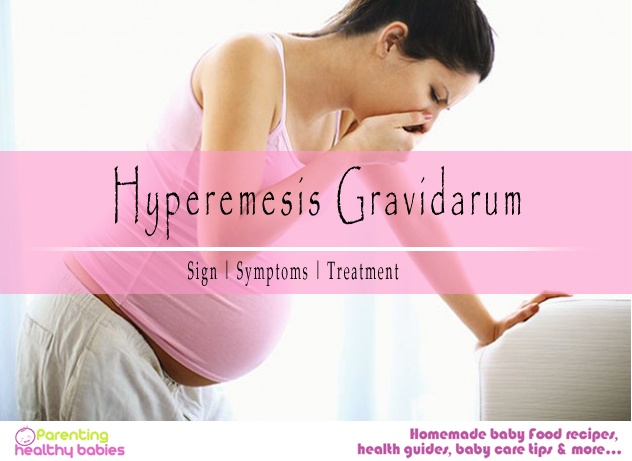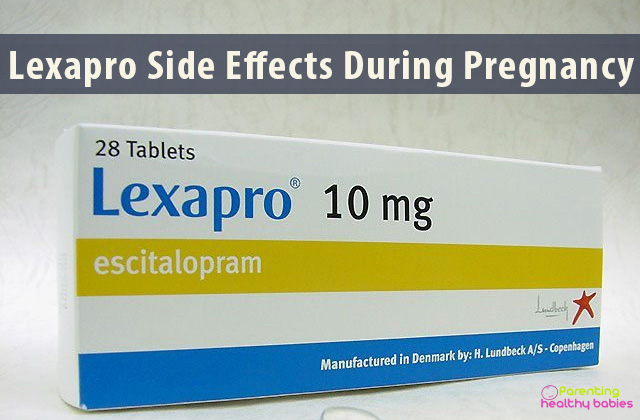Hyperemesis Gravidarum: Sign, Symptoms and Treatment
A lot of pregnant women suffer from morning sickness. While, some ladies breeze through their pregnancy period, without even a single bout of vomiting, a lot of ladies have to go through all that pain and suffering, especially in the first trimester, when the symptoms are worse. For some ladies, this sickness is really intense. As per statistics, almost 3 % of the ladies suffer from a problem, known as Hyperemesis Gravidarum. Though, there is no cure for this, the problem is only temporary, and can be managed.
Read More: Remedies for Nausea and Vomiting in the Third Trimester
What is Hyperemesis Gravidarum?
Hyperemesis Gravidarum is associated with pregnancy, and women suffering from it, vomit a lot. This can also cause problems like weight loss, dehydration, etc. Though, morning sickness eases off on its own once the first trimester gets over, the HG syndrome lasts a while longer.
The problem starts off between the fourth and sixth week of pregnancy, and becomes worse when the term reaches 9 or 13 weeks. The vomiting becomes so severe that most women are not able to do even the simplest basic tasks. The symptoms ease off after the 20th week, sometimes. Though, the doctors are not able to pin point correctly about the cause of this, the problem is mainly associated with rising hormone levels.
What is the difference between morning sickness and HG?
Morning sickness is different from HG, though, both occur during pregnancy. HG and Morning sickness have a connection with the HCG, or the human chorionic gonadotropin. HCG is a hormone, which is creating during the pregnancy, by placenta. This happens because the body produces a massive amount of HCG hormone, that too at a fairly rapid rate, in the early pregnancy. As per the American Pregnancy Association, the level of HCG double up every 48 – 72 hours. And, these levels can continue rising throughout the pregnancy.
It is important to distinguish between the two, so that suitable treatment can be given.
Morning Sickness
While morning sickness includes nausea, which is usually accompanied with vomiting, the symptoms mostly vanish off after 12 – 14 weeks, and the vomiting does not cause a severe hydration problem. Morning sickness usually starts in the first trimester, and goes away by the start of second trimester. Ladies, suffering from morning sickness feel tired, and witness a loss of appetite. They also find it difficult to perform routine tasks.
HG
HG, on the other hand, includes persistent nausea, combined with severe vomiting. This causes severe dehydration, and the person is not able to keep any fluids or food inside. The HG symptoms start off within 6 weeks of the start of pregnancy. It can lead to tiredness, which can last for several weeks or months. HG can make the women lose all their appetite, and she might not be able to do any work. It can also lead to severe dehydration.
Signs and symptoms:
If you are aware about what your symptoms are, and what actually causes this problem, you would be better able to deal with it. Given below are some common signs, symptoms and causes of Hyperemesis Gravidarum:
- Persistent sensation of nausea
- Severe loss of appetite
- More than 4 times of vomiting in a day
- Feeling severely dehydrated
- Feeling of dizziness or light-headedness
- Losing about 5 % of the weight, due to vomiting and nausea
- Reduction in urination
- Head aches
- Confusion
- Fainting
- Extreme tiredness
- Jaundice
- Low blood pressure
- Rapid heart rate
- Losing the elasticity of the skin
Causes:
- Women, having this condition during previous pregnancies, have more chances of getting it again. Though, there is no way for preventing this, one can try taking multi-vitamin tables before conceiving, as this might give them some prevention.
Risk Factors:
Some of the factors, which can increase the risk of getting HG include:
- Women, having history of HG
- Women, carrying more than one child
- Being obese and overweight
- Being a mom for the first time
- Suffering from Trophoblastic disease, which occurs when the growth of cells is abnormal inside uterus.
Complications:
Hyperemesis Gravidarum might cause some problems for the women and her baby. Some of the complications include:
- Weight loss: 5 % of weight loss in the pregnant ladies is common. Anything beyond that is a cause for concern.
- Kidney problems: Kidneys might stop functioning properly, and women might pee lesser than what they should.
- Mineral Imbalance: The ladies might have lower levels of minerals in their body. These are known as electrolytes, and your body needs them, in good amount. Some of the essential minerals include Potassium and Sodium. A deficiency of this can cause weakness, dizziness and variations in blood pressure.
- Muscle weakness: Malnutrition, added with imbalance in electrolytes, and a need for lying down, can cause weakness in your muscles.
- Saliva: A lot of saliva might get generated. And, swallowing the same might worsen the nausea.
If you are facing any of these symptoms, then you should definitely start treatment. Without taking proper treatment, there are chances of the baby getting born prematurely, or having a lower birth weight.
Treatments:
The actual treatment will depend upon the symptoms. Some of the treatments are described below:
- Changes in lifestyle: Try to eat smaller and more frequent meals. Also, take smaller drinks, but try to drink more frequently, and through straw. Also, try to eat more of cold foods, if the hotter food items are giving you acidity, and nausea. Try to drink sports drinks, and take nutritional supplements. Sleep well, and manage your stress levels, as stress is the main reason for various problems.
- Ginger: Taking 1 – 1.5 grams of ginger every day in smaller doses might help some ladies. You can put the ginger in lollipops, tea, food or supplements, if you cannot eat them raw.
- Thiamine: This vitamin is also known as Vitamin B. Taking it in doses of 1.5mg every day might ease off the vomiting symptoms and sensations.
- Medicines: You can take the prescribed medicines from the doctor for throwing up less. These medicines can be taken orally, or through IV or injection. You can also take antacids, or IV steroids. Some common medicines include Promethazine, or Meclizine. But, before taking any medicines, do check with the doctor if they are safe for you and for your baby.
- Doctor’s recommendations: The doctor might recommend natural prevention methods for nausea, like ginger or vitamin B-6. Try to eat dry foods like crackers. Keeping oneself hydrated at all times, will also help.
- Check into hospital: If none of the above treatments help, you might have to check into a hospital. Almost 5% of the women have to get into the hospital, for getting HG treated. But, that would be the last resort, if all the other treatments fail. In the hospital, you will be injected with IV fluids, and fed through tube or through intravenously.
Other treatments:
- Bed Rest: This is for providing comfort, but be aware that too much of bed rest can lead to weight loss and muscle loss.
- Acupressure: Acupressure is also another useful treatment. The pressure point for reducing the nausea is situated in the centre of inner wrist, just 3 finger length away from the wrist’s crease. It is between 2 tendons. Try to locate it and press it firmly, for 3 minutes. You can also use sea bands, which are available locally. These will help you with the acupressure, and will give you some relief.
- Herbs: Eating some herbs like peppermint or ginger can also be helpful in controlling vomiting and nausea.
- Homeopathy: Homeopathy is slow, but is non-toxic. One can try homeopathic medicines to get relief, but do not prescribe it to yourself, on your own.
Once the vomiting stops, and you are able to keep the food in the tummy, and keep yourself hydrated, you can stop all treatments.
Diagnosis:
When you visit the doctor, he will check out your symptoms, and medical history. A physical exam will be done for doing a diagnosis. He will also check the blood pressure, and pulse. Blood sample and urine samples will be taken, to ascertain whether it is HG, or something else. Other additional tests might also be taken, to rule out issues related with gastrointestinal problems. Also, an ultrasound might be taken to ascertain whether the lady is carrying twins, or multiples.
HG and the long term outlook:
The symptoms of HG vanish soon after the child is delivered. But, as per the studies, the recovery post-partum is longer for ladies, suffering from HG. Women suffering from HG undergo a lot of emotional and psychological stress, and this can deeply impact the quality of life. So, it is wise to consult a doctor, and take suitable treatment. But, remember that when it comes to medicines, it is important to jot down the risks involved, along with the benefits. Some of the drugs might have severe or drastic effects on the growth of the child, so better be safe than be sorry. Enjoy the pregnancy moments, without worrying about unnecessary things. Think positive throughout.
Read More: Jaundice During Pregnancy: Symptom, Causes, Treatments
References
http://www.healthline.com/health/hyperemesis-gravidarum
http://americanpregnancy.org/pregnancy-complications/hyperemesis-gravidarum/













